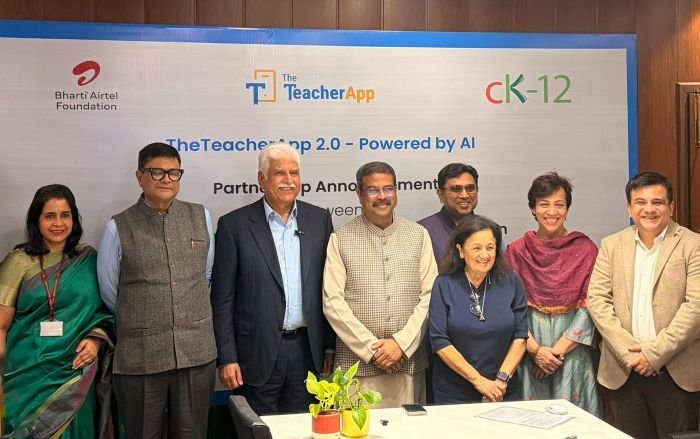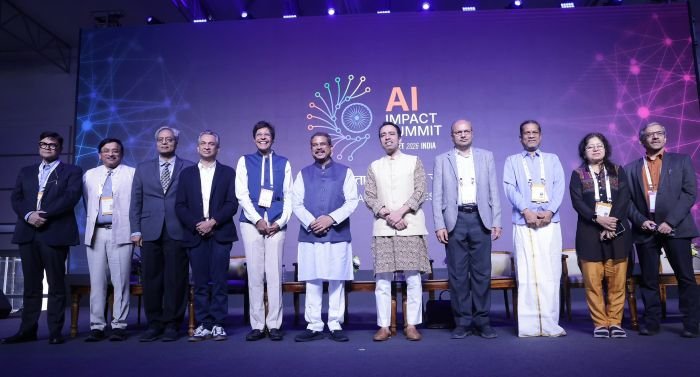A two-day International Conference on Sustainability Education was held in Delhi on Sep 9-10 where experts, academicians, activists and practitioners felt mainstreaming sustainability in education is still a huge but necessary challenge

Even as the UNESCO’s Global Action Programme (GAP) on Education for Sustainable Development, which expires later this year and a new framework is being worked out to replace it from January 2020, there are concerns that despite Agenda 21 having received overwhelming support and climate change along with other environmental issues assuming alarming status, education systems, haven’t still ingrained sustainability concepts in their academic processes and course ware.
Several experts from various reputed institutions and organizations, who are taking part in a two-day (Sep 9-10) International Conference on Sustainability Education (ICSE 2019) jointly organized by Mobius Foundation, The Climate Reality Project, India in partnership with UNESCO New Delhi office in New Delhi referred to tardy progress in gelling sustainability of environment knowledge concepts in curriculum and assessment. This is the first of its kind conference on the theme of education for sustainable development in India.
Martin Siegert, Professor of Geosciences and co-Director of the Grantham Institute, Imperial College London was quite empathetic in underlying the emergency of education systems aligning with the sustainability at the earliest. Achieving the goal of zero carbon economy is inevitable over next 30 years as the carbon dioxide level in the atmosphere has shot up to 400 part per million and is highest in last several centuries. “In next century, we may reach the level (1000 ppm) and earth temperature increase at which dinosaurs was wiped out 65 million years ago. So, the economy has to rejig itself to prevent such a scenario,” he said while adding that some business courses and companies on clean tech have been formed and hopefully this will be a trend to go by.
Narasimha Murthy, Chancellor of the Sri Sathya Sai University for Human Excellence based in Karnataka and a long-term warden for the various campuses of the Sathya Sai Institutions, who was the chief guest at the inaugural plenary put the blame of indifference to environment squarely on the erosion of spiritual values among students. “Unity of all existence is our civilizational spiritual wisdom, which has been repeatedly reinforced by preachers from time to time but that quest is missing from our centres of learning and texts. With information and knowledge, we need wisdom which can come through cultivation of spiritual values of being respectful to nature. Education without values can become agent of destruction,” he said.
Donna Goodman, Founder and Executive Director of the Earth Child Institute (ECI), USA, who has earlier served at UNICEF for several years, said peace and education go together. “Major conflicts in the world are over water. Peace has to come through science. There are successful models but I must admit that I am disappointed as sustainable development hasn’t been mainstreamed in education,” she added.
In his video message US-based Prof. Jeffrey Sachs, Director, Centre for Sustainable Development, Columbia University talked about interdisciplinary nature and interconnected systems of sustainability from physical environment to human behavior and businesses. He also added two more requirements for a new paradigm of ‘environment’ education—being holistic and ethics. “It extends to all spheres of life and therefore individual choices and behavior as good citizens. Right kind of behavior from the beginning, personal choices, values are all necessary for wellbeing of all and future generations. Primary and secondary school engagement is the way to go,” he added.
Kartikeya Sarabhai, founder director of the Centre for Environment Education, Ahmedabad, while recalling the history of environment education in India blamed the examination orientation of country’s education system for leaving out sustainability studies. “It is not only content or information but about valuing observations and handprints. Our education system is not ready to fit the change.” He wondered why cloth bags, which two generations ago were standard in India on shopping needs a campaign now? “Education for life, education through life and education throughout life as outlined in Upanishads has to be put in a new context. Children have to be taught to be respectful not wasteful,” he said.
Vivek Menon, founder, executive director and CEO of the Wildlife Trust of India, Noida, as well as Advisor to the International Fund for Animal Welfare, sarcastically mocked on the understanding of environment education within education system and environment ‘champs’ by saying that only planting trees will at best suit monkeys. “Grass is equally important,” he said while adding that understanding nature and conservation action is more critical. “Biodiversity and forests are the real challenge. Importantly, imparting skills are needed to work in these fields than just making supporters theoretically. Draft NEP has skipped biodiversity, is that the understanding of policy makers on as important a subject as environment education?” he mentioned.
Sunita Narain, director of Centre for Science and Environment (CSE), New Delhi, while referring to CSE’s green school project revealed that the elite schools that make more noise and PR on environment education claims are in fact lowest in program’s benckmarks.
It may be mentioned that environment education over the years has come up as a distinct discipline and various approaches and methodologies of teaching and learning have evolved at various levels. However, there is a need to bring out specifics and intricacies of environmental education as an agent of change and transformation in true sense. It is also interesting to note the transition from environment education (EE) to education for sustainable development (ESD) and moving towards more focused climate change education (CCE) which reflects the need for reorienting educational priorities to the newer global challenges of today. In this context the ICSE 2019 is certain a welcome initiative.
Pradip Burman, Chairman, Mobius Foundation says: “. ICSE 2019 aims to aid the implementation of education for sustainable development (ESD) which is culturally-relevant, locally appropriate, occurring across national school education system.”
By Autar Nehru








